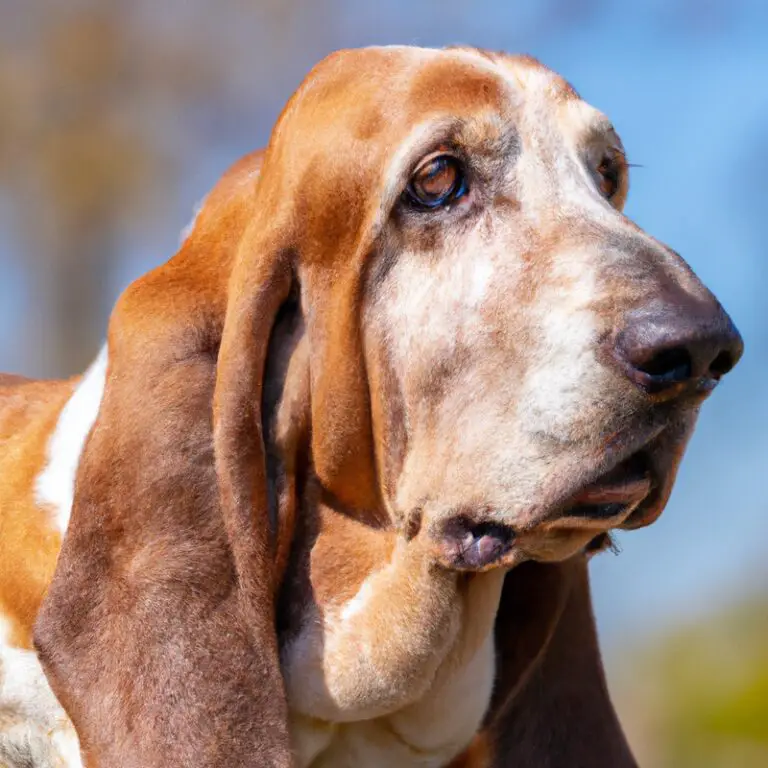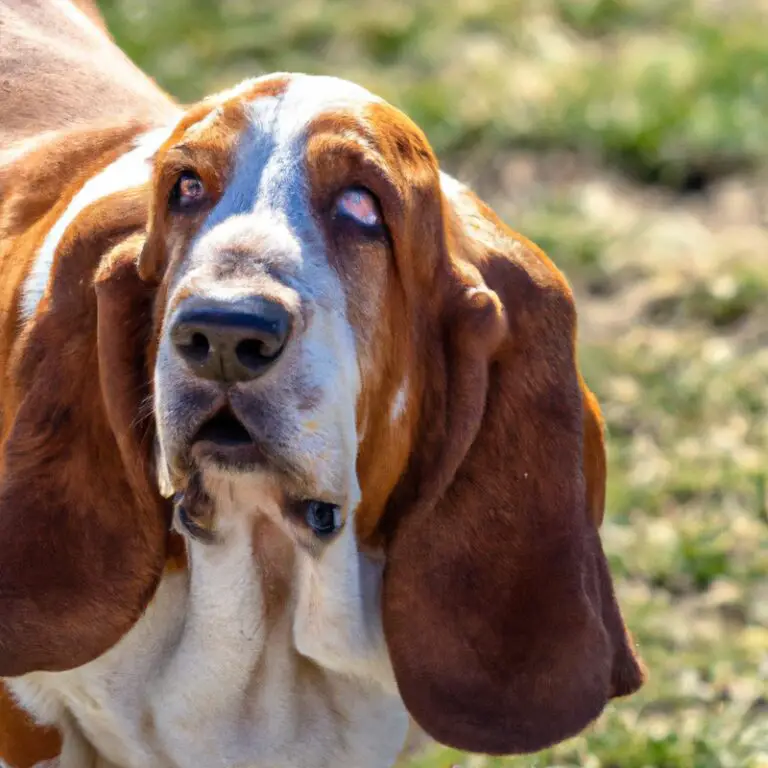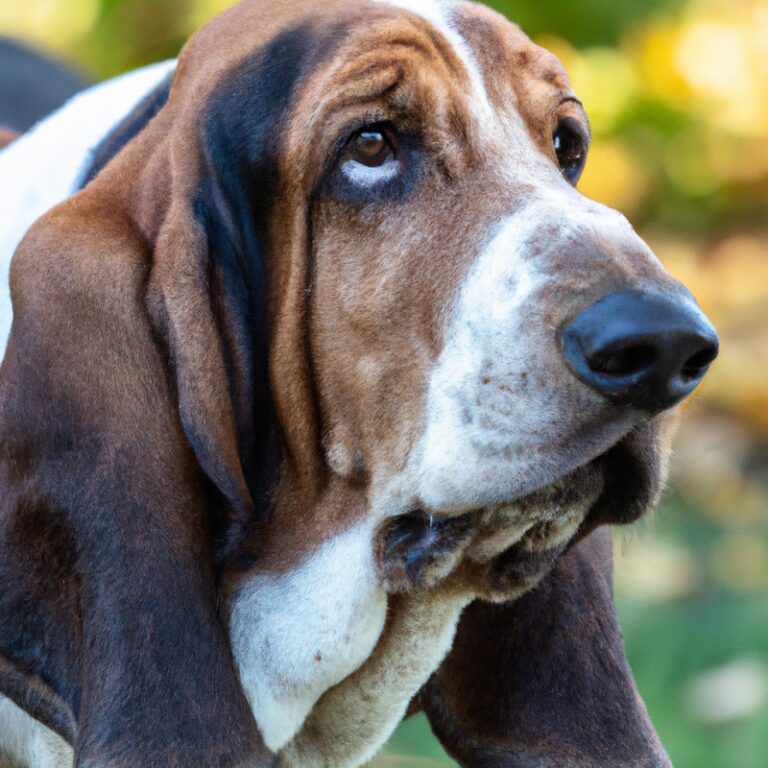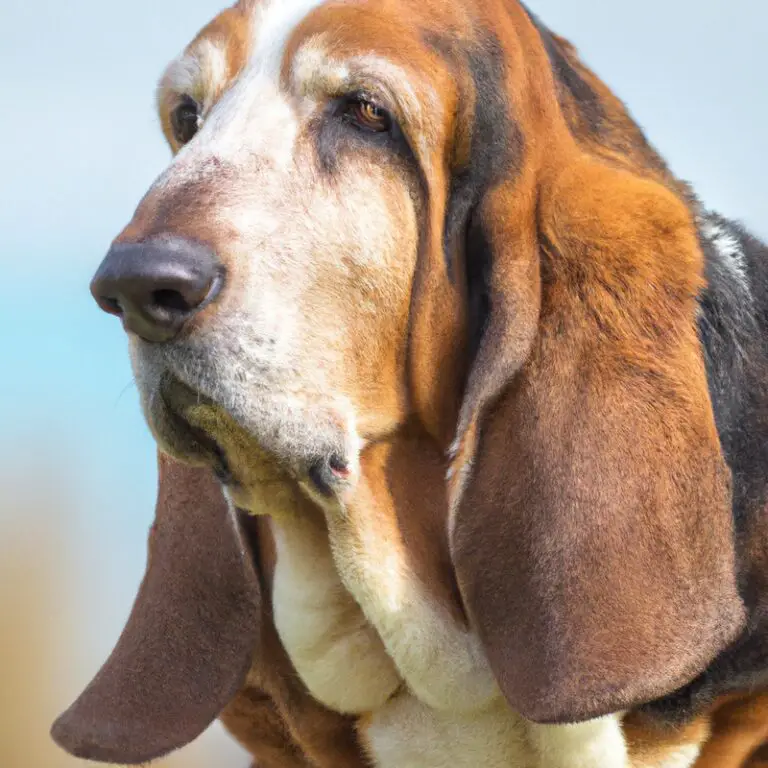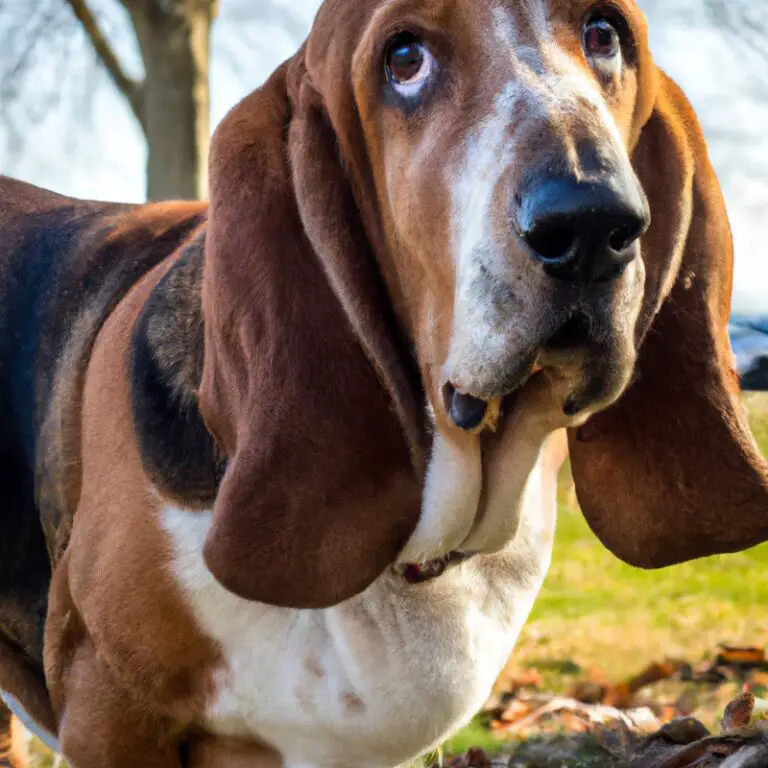Are Basset Hounds Known For Being Good With Livestock?
Key Takeaways:
- Basset Hounds are not typically known for their herding or guarding abilities with livestock.
- Their hunting instincts may make it challenging for them to peacefully coexist with livestock.
- Proper training and socialization can help mitigate any potential issues.
- It is important to consider each individual dog’s temperament and characteristics when determining their compatibility with livestock.
Are Basset Hounds the perfect companion for your livestock? When it comes to working alongside farm animals, it’s important to consider the temperament and instincts of your chosen breed.
In this article, we’ll delve into the world of Basset Hounds to determine if they possess the qualities and characteristics necessary to excel in a livestock environment.
From exploring their natural instincts to assessing their compatibility factors, we’ll provide an expert analysis backed by real-world experiences. So, whether you’re a farmer or simply curious about these charming dogs, join me on this journey to discover if Basset Hounds are truly a match made in heaven for your livestock.
| Breed | Good with Livestock? |
| Basset Hound | No |
Understanding Basset Hound temperament
Description of Basset Hound characteristics and traits
Basset Hounds are known for their unique characteristics and traits. They have a distinctive appearance with long, droopy ears and a saggy face.
These dogs are medium-sized, with a sturdy build and a low-to-the-ground stature.
Basset Hounds have a friendly and gentle temperament, making them great companions. They are generally good with children and other pets due to their patient and laid-back nature.
Bassets are known for their excellent sense of smell and tracking abilities, which make them suitable for activities like scent work and hunting.
Additionally, they are known for their calm, easygoing demeanor and their tendency to be a bit stubborn at times.

Discussion on Basset Hounds’ natural instincts
Basset Hounds have a number of natural instincts that contribute to their unique temperament. They are scent hounds, known for their exceptional sense of smell, which makes them excellent trackers.
They have a tendency to follow their noses, which can sometimes lead them astray if they catch an interesting scent.
Bassets are also known for their persistence and determination, which can be seen in their hunting instincts. These instincts can make them focused and single-minded when on a trail, but may also result in a lack of responsiveness when they are fixated on a scent.
Additionally, Basset Hounds are generally good-natured and gentle dogs, making them a popular choice for families and as therapy animals.
However, they can also be quite stubborn at times, so consistent and patient training is important to bring out the best in them.

Basset Hounds and Livestock Interaction
Exploring Basset Hounds’ history with livestock
Basset Hounds have a long history of being used with livestock, particularly in hunting scenarios. Their keen sense of smell and tracking abilities have made them valuable assets in tracking game and locating lost animals on farms.
While they may not actively work or herd livestock, their ability to scent and track has made them useful companions for farmers and hunters alike.
It’s important to note that individual Basset Hounds may vary in their interest and behavior towards livestock, so proper introduction and supervision are always recommended.

Examples of livestock commonly found on farms
On farms, you’ll find a variety of livestock that serve different purposes. Some common examples include:
- Cows: Often raised for milk or beef production.
- Pigs: Raised for pork and other products.
- Chickens: Valued for their eggs and meat.
- Sheep: Primarily raised for wool and meat.
- Horses: Used for riding, working, or as companion animals.
- Goats: Raised for milk, meat, and fiber.
- Ducks and geese: Kept for meat, eggs, or as pest control.
- Turkeys: Typically bred for their meat.
- Bees: Essential for honey production and pollination on the farm.
These are just a few examples, and the specific livestock found on farms can vary depending on the region and the goals of the farm.
Potential challenges of Basset Hounds with livestock
Basset Hounds can face some challenges when interacting with livestock. Firstly, their instinct to chase and hunt small animals may lead them to see livestock as prey.
This can cause stress to the livestock and potential harm if not properly managed.
Secondly, their low stature may make it difficult for them to effectively herd or control livestock. This could potentially result in a lack of control and potential danger for both the Basset Hound and the livestock.
Additionally, their laid-back temperament may not be well-suited for the high-energy and dynamic environment of working with livestock.
It is important to consider these challenges before introducing Basset Hounds to livestock and to ensure proper training and supervision to prevent any negative interactions.
Factors affecting Basset Hounds’ compatibility with livestock
Early socialization and training of Basset Hounds
Early socialization and training are essential for Basset Hounds to develop good behavior and adaptability. It is crucial to expose them to various environments, people, and animals from a young age.
Puppy classes and positive reinforcement training methods can help with their communication skills and obedience.
Early socialization and training lay the foundation for a well-rounded and well-behaved Basset Hound. Giving them plenty of positive experiences will ensure they grow up to be confident and friendly companions.
Individual personality variations among Basset Hounds
Basset Hounds, like any other dog breed, exhibit individual personality variations.
Some Bassets may be more outgoing and social, while others may be more reserved and independent.
Some may have a higher energy level and be more active, while others may be more laid-back and relaxed.
Additionally, each Basset Hound may have different likes, dislikes, and preferences.
It’s important to remember that not all Bassets will have the same personality traits, and it’s essential to consider these variations when assessing their suitability for specific tasks or lifestyles.
Proper introduction and supervised interaction with livestock
Proper introduction and supervised interaction with livestock is crucial when introducing a Basset Hound to farm animals.
Start by allowing the dog to observe the livestock at a distance, ensuring they remain on a leash.
Gradually decrease the distance over time, allowing controlled, supervised interactions.
Use positive reinforcement to reward calm behavior and discourage any chasing or aggressive behavior.
Always prioritize the safety of both the dog and the livestock during these interactions.
Proper introduction and supervision are key to fostering a positive relationship between Basset Hounds and livestock.
Assessing Basset Hounds’ suitability for livestock
Evaluating Basset Hounds’ energy level and exercise needs
Basset Hounds have a moderate energy level and exercise needs.
They are not as high-energy as some other breeds, but still require daily exercise to stay healthy.
A couple of brisk walks a day and some playtime in the backyard should usually be sufficient.
Bassets love sniffing and exploring, so taking them on walks in different environments can be a great way to stimulate their minds.
It’s important to ensure they don’t become overweight, so monitoring their food intake is also crucial.
Providing mental stimulation through puzzle toys and training exercises can help keep them mentally engaged.
Considering Basset Hounds’ prey drive and instincts
When considering Basset Hounds’ prey drive and instincts, it’s important to acknowledge that these dogs have a natural inclination to chase and pursue small animals. This instinct stems from their hunting heritage, as Basset Hounds were originally bred for tracking and trailing game.
While they may not be specifically trained to be livestock guardians, their instincts could potentially pose a challenge when interacting with livestock.
It’s crucial to closely supervise and properly introduce Basset Hounds to livestock to ensure their compatibility and prevent any undesirable behaviors.
Expert opinions and experiences on Basset Hounds with livestock
Expert opinions and experiences on Basset Hounds with livestock vary.
Some experts believe that Basset Hounds can be trained to coexist peacefully with livestock, while others are more cautious.
One important factor is early socialization and training, which can help Basset Hounds understand boundaries and behave appropriately around livestock.
However, it’s important to note that individual personality variations among Basset Hounds can also affect their compatibility with livestock.
Proper introductions and supervised interactions are crucial to ensure the safety of both the Basset Hound and the livestock.
Alternatives to Basset Hounds for livestock-related tasks
Other dog breeds commonly used with livestock
Other dog breeds commonly used with livestock include:
- Border Collie: Known for their intelligence and herding instincts, Border Collies excel at managing and moving livestock.
- Australian Shepherd: This breed is highly versatile and often used for herding a variety of livestock, including sheep and cattle.
- Australian Cattle Dog: Originally bred for herding cattle, Australian Cattle Dogs are known for their endurance and working abilities.
- Old English Sheepdog: These gentle giants are well-suited for herding and protecting livestock, particularly sheep.
- German Shepherd: Renowned for their obedience and versatility, German Shepherds are often employed as livestock guardians and herding dogs.
- Anatolian Shepherd: This breed is highly skilled at guarding livestock and has a strong protective instinct.
- Great Pyrenees: Known for their size and protective nature, Great Pyrenees make excellent livestock guardians, especially for large flocks.
Each breed offers its own unique set of skills and qualities that make them valuable assets in livestock-related tasks.
Discussion on specific traits and qualities of alternative breeds
Alternative breeds to Basset Hounds for livestock-related tasks have their own unique traits and qualities.
Border Collies, for example, are known for their intelligence and herding instincts, making them excellent for managing livestock.
Australian Shepherds are agile and have strong working drive, making them suitable for a variety of livestock tasks.
Australian Cattle Dogs are sturdy and athletic, making them ideal for herding and guarding livestock.
Great Pyrenees are protective and calm, making them effective livestock guardians.
Each breed brings its own set of strengths and characteristics to the table, allowing for a diverse range of options when considering a dog for livestock-related tasks.
Final Verdict
Basset Hounds can be good with livestock, but it depends on various factors. Basset Hounds have a calm and gentle temperament, which can be beneficial when interacting with livestock.
However, their strong scenting instincts and low energy levels may pose challenges in certain situations.
Early socialization, individual personality variations, and supervised introductions are key considerations when assessing a Basset Hound’s suitability for livestock. While Basset Hounds can excel in some tasks on the farm, there are other dog breeds that may be better suited for specific livestock-related tasks.
It’s important to carefully evaluate a Basset Hound’s energy level, prey drive, and instincts before deciding if they are the right choice for working with livestock.


